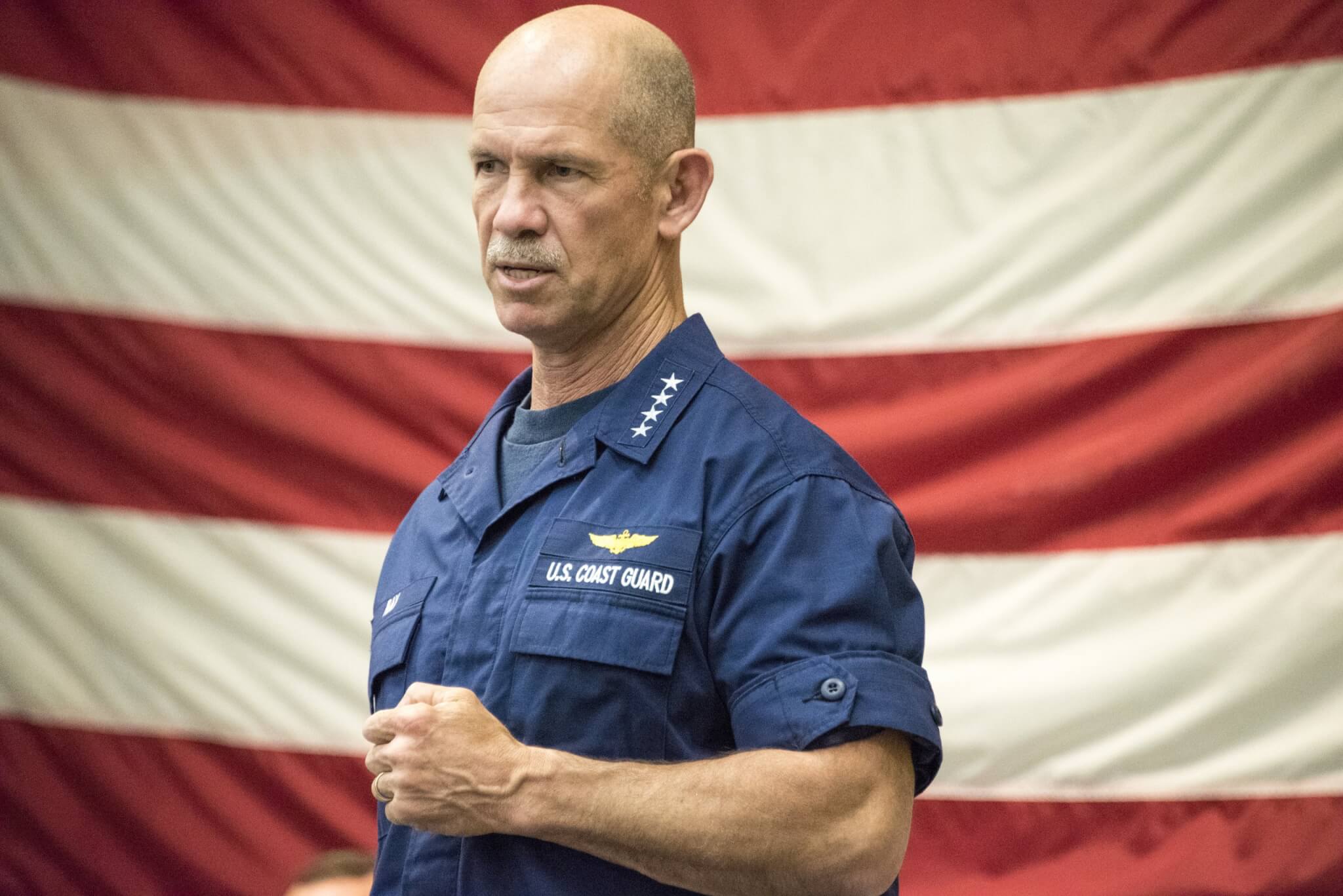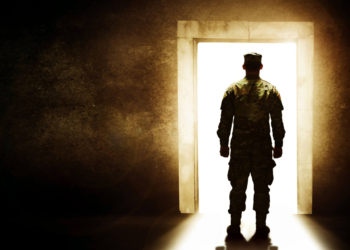Military suicide rates have been steadily climbing, according to a Pentagon report released in 2019, with growing attention on prevention efforts — including mental health programming. But one group remains uncounted: the Coast Guard.
The Coast Guard is not required to publicly release its suicide data because it falls under the Department of Homeland Security, rather than the Department of Defense that is congressionally mandated to do so. But, the Coast Guard is losing people. Social media was reporting it, even if official reports are not.
Vice Commandant Adm. Charles Ray released a video in October of last year in response to growing concerns over suicide within the Coast Guard. In the video, titled “You are not alone,” he confirms what was already trending online: unofficial numbers of Coasties were taking their lives.
Ray says the Coast Guard mirrors the national trend for suicides, especially in the 13-34 year-old male range. He explained that not releasing numbers wasn’t a matter of hiding anything, but rather because the Coast Guard has the smallest number of members, making it difficult to compare to the other branches under the Department of Defense. Seeing multiple suicides in a row prompted him to stop and question if the Coast Guard was doing enough, he adds.
“That’s the reason you saw the video I put out there. I wanted to make sure we were doing everything humanely possible,” he said. “It is the Coast Guardsman’s duty to each other to ask hard questions.”
The Coast Guard is already taking steps to expand its suicide prevention training by following the ACE model: ask, care, and escort. Ray says one way Coasties can apply this to their own lives is by talking to each other, and if someone is acting off, absolutely ask them if they are thinking of harming themselves.
“One of the most important things we are doing right now is talking from the top down. This is something that A, you have to talk about and B, know you aren’t automatically put into a penalty box or kicked out of the service. We have to stop this from happening and then we’ll work through ramifications of the career. Remove the stigma,” he said.
In his own career, Ray has worked with a number of men who had experienced and reported suicidal ideations. In those cases, they were able to continue their service in the Coast Guard. He stated that the protocol is to get the member into proper medical care immediately. Following their release, the member’s command will set up a care plan that is tailored to each person individually.
“If someone has long-term mental health concerns and can’t get through that process then at that point continued service wouldn’t be viable,” he said.
Studies have documented the correlation between post-traumatic stress disorder, which is caused by exposure traumatic events, and the increased risk of suicide. As first responders, members of the Coast Guard are routinely exposed to significant trauma such as rescue missions that end in death, like in the case of those who attempt suicide off bridges into the water.
Ray reported there is always a debriefing after each case and if it involves loss of life, trained Critical Incident Stress Management individuals become involved. They will work with members through what to expect, like possible nightmares and follow along with counseling if needed by the member. He shared a recent example of when the Coast Guard responded to the border crisis and how difficult it was on many of the members. CISM was involved heavily during that time to ensure members were supported.
When asked about his thoughts on the “why” behind the latest increase in suicides, seeming at a loss but sharing he’d met with professionals and chaplains who say the common denominator appeared to be life stressors, for the most part.
People think that no one cares if they are there, Ray says, which is why every individual has the opportunity to transform that mindset for someone else.
“Be engaged with each other so that we know what a good day is and what a bad day is. I want to drive the (suicide statistics) number down to zero.”
If you or someone you know in the Coast Guard is suffering with suicidal thoughts, you are never alone. Please reach out to the following resources for immediate help:
CG SUPRT
Coast Guard: Solutions Understanding Prevention Resilience Trust
Free and confidential services, 24/7
855-CG-SUPRT (247-8778)
Coast Guard Chaplains
855-872-4242
The National Suicide Prevention Lifeline
1-800-273-TALK (8255)
Read comments

























